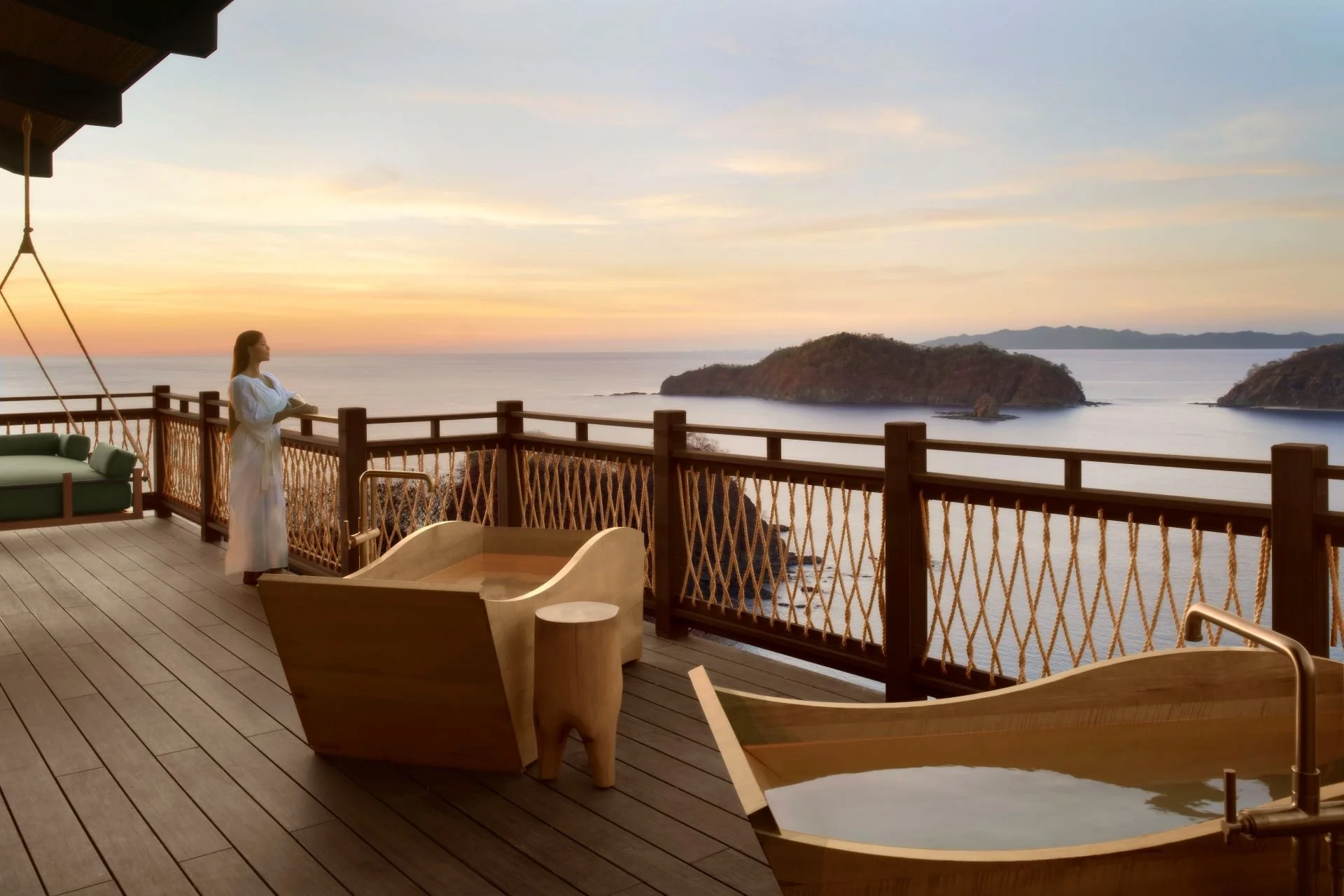The Last Ringfence: Why We’ll Give Up Almost Anything Before We Give Up Travel
Every economic season has its contradictions. In 2025, it’s this: Britons are cutting back on everything from dinners out to home upgrades yet travel budgets remain untouchable. Research by RSM found that overseas holidays longer than five days are up six percentage points on last year and weekend breaks abroad have climbed by the same amount. Luxury and mid-market hotels are up too while budget stays have slipped. Deloitte’s latest consumer tracker confirms it: holidays continue to outperform most other spending categories. Even as inflation bites, people are protecting their travel plans with the same resolve they once reserved for essentials.
It raises a question that feels almost philosophical: why, when the world is so uncertain, are we more determined than ever to leave it behind?
Part of the answer lies in psychology. Studies show that stress drives people to choose experiences over possessions. The more anxious or powerless we feel, the stronger our impulse to escape, not through consumption but through context. Global stress levels are now at record highs and surveys consistently link travel to mental restoration. In one study, 70% of office workers said travel was their main way of coping with stress. Another found that 94% of people considered their holiday memories “essential to life.” In an era defined by burnout and volatility, a week away is no longer indulgent. It’s therapy.
Yet this isn’t simply about escapism. The meaning of luxury travel itself has changed. What people seek now is not status but relief: time that feels unburdened. The “weekend getaway” has evolved into the four or five-day European stay with part of the trip spent working remotely. It’s a shift born from new freedoms and fatigue: professionals leaving corporate roles, parents restructuring family time, young people trying to live differently without giving up the pleasures that make life feel expansive.
The market data quietly tells this story. RSM’s Hotels Tracker shows travellers “trading up,” moving from budget to mid-tier and luxury hotels, not down. It isn’t about showing off, it’s about feeling taken care of. Deloitte found that 36% of consumers are even willing to pay more for environmentally responsible hotels and Gen Z prioritises brand trust over price. These patterns suggest a deeper desire: not for extravagance but for alignment. Travel, for many, has become the last space where quality still matters, where the details haven’t been stripped back for efficiency.
Social media has reinforced that shift rather than causing it. Platforms like Instagram and TikTok have made travel both performance and proof, a way to communicate taste and identity. Twenty-eight percent of travellers now research trips through social media before booking, not just for deals but for stories. Destination “dupes,” lesser-known alternatives to overexposed hotspots, have become aspirational. Influence has turned inward: we don’t want to be seen everywhere, we want to be seen differently. For the discerning traveller, luxury means not just where you go but why.
At the same time the industry itself is bending toward meaning. Corporate incentive trips, once formulaic, now centre on cultural immersion: private dinners in palaces, artisan gifting suites and experiences rooted in place. The travel sector’s success isn’t stubbornness, it’s evolution. It has quietly adapted to what people now value most: belonging, beauty and reprieve.
It’s also, in a strange way, collective defiance. The cost-of-living crisis has made many people feel powerless in other parts of their lives: housing, career progression, politics. Travel is one of the few areas where people can still exercise agency. You may not be able to control your mortgage rate but you can still choose a week in Lisbon or Lagos. You can choose when to disconnect. You can buy perspective.
That’s why the forecasts continue to surprise economists. Even with higher airfares, even with geopolitical tensions and environmental concerns, forward bookings remain strong. For many, travel has become the last ringfence, the expense we protect not because it’s frivolous but because it’s fundamental.
Luxury travel then isn’t shifting because the definition of luxury itself has already shifted. It no longer means excess, it means ease. It’s not the suite but the silence. Not the flight but the feeling. In a world collapsing under its own noise, the true measure of wealth may simply be the ability to step away.
At The Three’s Club that belief guides how we think about travel as culture, care and connection, not consumption. Because the one thing we know for certain is this: the appetite for escape isn’t disappearing. It’s deepening. And it tells us something profound about the times we live in, that the search for beauty is still our most human act.

